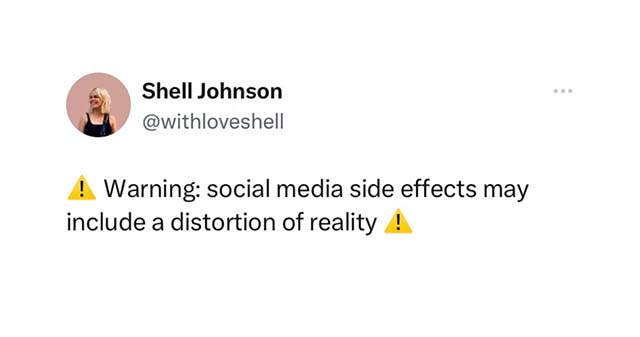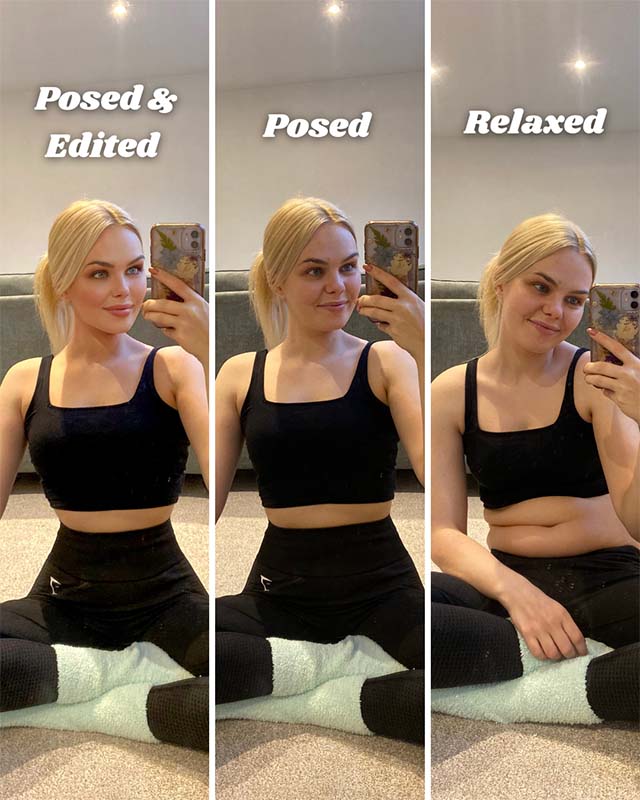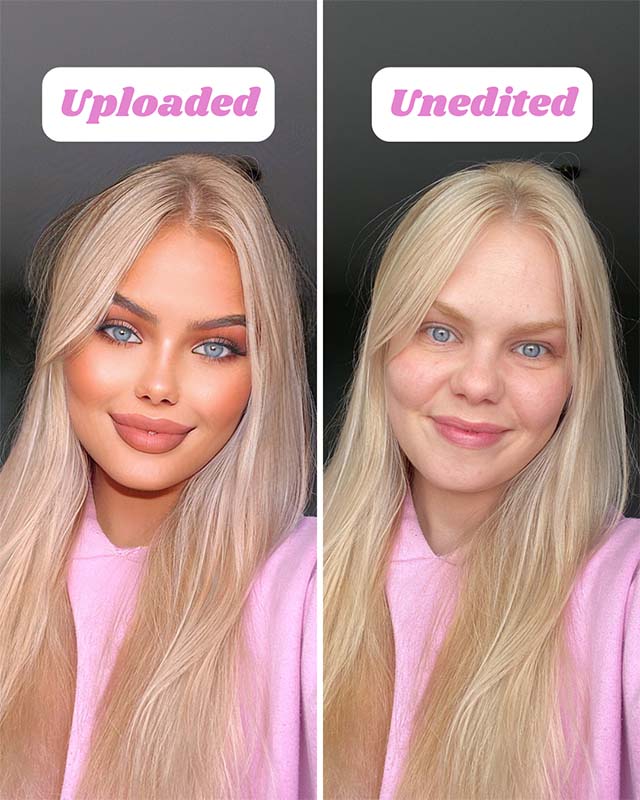By age 13, 80% of girls distort the way they look online.
It’s been four years since Dove released this stat, but it feels just as chilling.
Posing, filters, edits, AI apps… these days, it couldn’t be easier to completely change the way you look in posts. Smoother skin, narrower noses, fuller lips, smaller waists, bigger hips, slimmer arms—and along come our daughters and sons, who have never known the world any other way and whose developing brains are internalizing all these unrealistic standards.
What a time to be a parent, hey? As a content creator with experience working in mental health and as a youth leader, I’ve seen how much social media can distort people’s perceptions and harm their mental well-being. And I see you, all of you parents, trying to navigate this scary new world.

The good news is, I think I can help. As I sit here in a coffee shop with my baby asleep in the pushchair next to me (that’s a stroller for the North American folks), I want to stress that as a caregiver in 2025, you have more influence in your children’s lives than it sometimes feels.
So here are a few things I’d suggest that can guide your family’s relationship with tech and model healthy behavior.
1. Never use filters on your own photos (especially ones with your kids in them).
You know those “innocent” filters that turn you into a cute animal? Most of the time, even they smooth your skin and change your features. So we might unintentionally be sending the message to our littles that even their primary caregivers are altering their appearances to conform to beauty standards. If we stop using filters and editing, they can look up to parents who accept themselves for who they are. How powerful!
2. Point it out when you see a photo that’s probably been manipulated.
“Everyone else has perfect, unblemished skin.”
“I’m the only one who doesn’t look like that.”
“I need to buy all these products influencers are promoting, and then I’ll look like they do.”

How will they know if we don’t tell them? To our eyes, it’s perhaps more obvious when a photo is edited or AI because we haven’t grown up in this filtered world. Let’s help train their awareness of what they’re consuming, so they can be kinder to their real self in the mirror.
3. Talk about what people choose to post on social—and what’s probably left out.
Did you know that large retail brands have had to change their return policies because people are placing massive orders, showing haul videos online, wearing the clothes for pictures, and then returning them?
From seemingly lavish lifestyles to bodies posed and contorted to look thinner (or whatever the latest ‘beauty trend’ is), so much of what we see is far from reality. People take 100 photos to choose just one to upload…

When we see a glimpse into people’s lives online, it’s easy to forget that we don’t see 99.9% of what’s actually going on for them. For our own well-being, as well as our children’s, we need to continuously remind our brains that what we’re scrolling through doesn’t reflect real life. Seeing ‘perfection’ at every turn needs to be called out, otherwise we can forget, a discontentment with our own lives can fester, and our mental health can be seriously impacted.
4. Keep the conversation open: social media, AI, cyberbullying, and mental health.
It’s hard to believe, but there are now ‘AI influencers’—accounts of people showing their amazing lives and being paid for brand deals, but they’re not even real. It’s becoming harder to tell what’s human and what’s not. What a minefield.

Talk about this with your children. Keep tabs on cyberbullying at their school. Stay on top of Snapchat, where evidence of conversations disappears (also a feature newly available on WhatsApp). Regularly check in to see if they’re feeling addicted to their device.
Open conversations around a screen-free dinner table can make such a difference, even if it doesn’t seem like it at the time.
5. You get to choose what you post online of your kids—and where.
Something I find myself reflecting on frequently when I scroll is the impact of childhoods being shared on social media. What will that feel like for them when they’re grown up?
As a response to the trend of ‘sharenting’ (parents publicly sharing kids online), I think we’re now starting to see a movement of parents putting their kids’ privacy first and protecting their digital footprints. This means less potential for identity theft, future bullying, career implications, embarrassment, or photos just generally getting into the wrong hands.
I’ve been using Tinybeans for months now (try it here!), which gives me total peace of mind that the only people seeing my daughter’s photos are the ones I choose. I still want to collect the story of her childhood in a beautiful way, but not at the expense of her privacy. When she’s older, she can then choose who sees her photos.
So here’s to our children growing up knowing that they are loved just as they are, even in this rapidly changing world.
